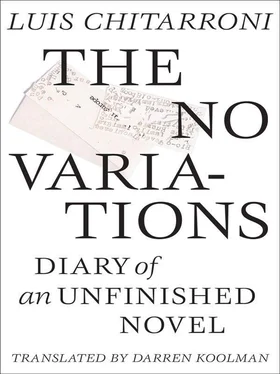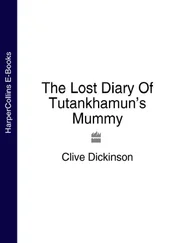1. Concerning the enigma of The X-positions
“Today I put an end to — which is to say, I found names for — two of the enigmas in my life, now banished forever,” wrote Nicasio Urlihrt in his diary shortly before his death. “They were in a terrible poem,” he added, “by a terrible friend: his worst, I’d say, although I admit its intended meaning was lost on me. Love’s got to be good for something. Time’s got to be good for something.” Those who want to pursue this matter further (or destroy the evidence) can take a break from reading this apologia and seek out the material in question, as published in the journal Agraphia . If nothing else, you’ll get a kick out of the punctuation.
X-Positions refers more to unresolved puzzles, the unknown, than to the old question of anonymity; this according to a somewhat biased interpretation of the second hemistich of the last line of the first stanza of the sonnet by Sabatani—“It wasn’t yesterday the world we call old / Nor the secret lost on a mystery / Cult. Be grateful for the levity in the grave: / The bad poets, the x-positions”—that precedes the three Spanish versions of Mallarmé’s “sonnet on X” in his chapbook.
The ability of the X to contain conflicting concepts is both a blessing and a curse, bestowed by accident and by amphibology, among other things. Xs are, according to Sabatani, “symmetries of opposition or denial similar to the phenomena of inverse relations studied by Lévi-Strauss.” The genealogy of these Xs goes back to the “the Arcadian period” of Agraphia [Urlihrtian terminology] — to its very first issues, in other words, in one of those supposedly popular articles Lino Scacchi wrote for Sherbet Aria (“Todo Sobre la equis” [All About X] later published in Idiomatics as “Todo sobre equis, nada sobre Zeda” [All About X, Nothing About Z]), later translated into English by Hermione Hepburn and published in a journal called Bible Black (Tantrum Press, 1978) with the title restored to “All About X” (for a brief description of how all this came about, see “Early”). In his essay, Scacchi unleashed all the voodoo-erudition of a man who nonetheless ended up as the crossword-writer for a small-town paper. He ascertained, for example, that the Dictionary of Defiance by the mysterious L.F. [Louis Felipon], traces the sound of the letter X to that of the Greek word chrestos , or Christ. And according Scacchi, who cites “the best prose in the world,” to adduce that the letter X “cheered and chastened the best man in the world, Thomas Browne, who said ‘the letter X … is the Emphaticall decussation, or fundamentall figure.’”
After two pages of frenetically-written fustian, full of unconnected ideas and obscure references, Scacchi proceeds along the following line of thought: “It’s curious to trace in the history of this feeble cruciate sign the adventitious influence that has led to its being given coronal rank in the hierarchy of letters. Nonetheless, in the majority of cases, writers, from Ben Jonson to Gertrude Stein, Confucius to Cummings, Argensola to Gerardo Diego, have rejected it with disdain. Ben Jonson wanted to remove poor X from the alphabet, saying it was ‘rather an abbreviation, or way of short writing with us, than a letter,’ and Gertrude Stein spoke of its triviality, its function as a simple strikethrough, swift deletion, blind shorthand. Some countries and languages — like Welsh and Gaelic, for example — have never felt its influence. Yet, its wholly gratuitous or fatuous acoustical expression is married to its striking graphical representation like no other letter in the abecedarian chronicle.”
For more on the casuistry, the soteriology, and even the proctology of the letter X, see Edgar Lee Meaulnes.
NO
Felipe Luini, Hunting Journal
Ideas of Order , Wallace Stevens
Table of Contents
1. THE SCENT OF THUNBERGIAS
I. Early
II. The Imitation of an Ounce
III. Returns
IV. Occupation
V. The House on Calle Piedras
VI. The Cult of St. Mawr
VII. America
VIII. The Scent of Thunbergias
2. THE SEYCHELLES
I. Laetitia Pilkington
II. Hilarión Curtis
III. Doris Dowling
IV. Constantin Berev
V. Lord Swindon
VI. Irene Adler
VII. Venus Rattlesnake
3. SHERBET ARIA
I. Stealth//Centipede
II. Centaur
III. Arena
IV. Rhetoric
V. Karmapolis
VI. Ahnungslosigkeit
VII. Sestina
VIII. Pop Museum
IX. Portrait of a Tin Soldier
X. Chronoscopy
XI. Sircular Cymmetry
XII. Lycergical Glossary
XIII. Away with Them [Dead Aunt’s Diary]
XIV. Epilogolipomena
4. POPULAR MECHANICS
I. Every Nerve and Sinew
II. Semblance
III. Replicas
IV. The Xochimilco Diary
Appendices
All About X
Fame, Polyonymy, and Denial in Agraphia
Photo Anthology
The Biographies
Epistolary
The Dry Martinis
Poem and Sestina
NO
Glenmorangie — Nicasio
Better: Lagavulin
Or bourbon — Wild Turkey — prefers Jim Beam to Jack Daniels. Four Roses. Canadian Club.
Wyborowa. Stolichnaya.
Angostura. Negroni
dosage
Fernet or Negroni, Eiralis.
Red without question. And lots of it. Lalo.
The Dry Martinis
To sing sweetly then perish —“For Janis Joplin,” A. Pizarnik
She seems quite despondent in that photo of her seated barelegged: an attitude of cloying introspection induced (more than likely) by the Southern Comfort
NO
Include “The Slow Ones”?
Because we were late in arriving, because we were late in departing, because we didn’t care that we’d be late, and, above all, because those for whom we waited turned out to be ourselves, which is to say, the others, the ones we called “the slow ones.”
There were whole days and nights during which we lost our way, during which we lost our purpose. We bummed around exchanging tales of days gone by, anecdotes, gossip.
Because we’ll be late in arriving, because we are loath to depart, because we don’t care that we’ll be late. Above all, because those for whom we wait will turn out to be ourselves, which is to say, the others, the ones we call “the slow ones.”
Neither drunkenly nor sleepily they’ll call us — no, are calling us—“the slow ones.”
And when the prize finally arrives, when it ripens, there will be music that will saturate us, sweep us from here to there,
reveal us to the women. When that very night suffocates us in its witching hour, the décolletées begin their long-awaited shift.
The night has plucked itself a jasmine, a gardenia, and we have vowed beneath our breaths to say now what tomorrow will catch (how this promise will bloom) in our throats.
It is now late (or expected) and obvious (or transparent)
the context to be demolished is night. Night, yes, but so close to the moment when she’ll take her leave, as that old Egyptian relic begins nodding off, that it’s practically day in the desolate dark.
They must conceal themselves. They are few, but they surround us. None can name them. They come, they float downstream, the décolletées.
“He dined on a mess of shadows,” one of them said, “what a mouthful (placed out of the children’s reach, yesterday — out of reach of their grasping nails). And now, once again, investors want to pluck out their own eyes, to be merely clients, but the kind that don’t pay.”
But we cannot be less useful than we are. We arrive late, but we don’t care. We are content to dine on leftovers. We, the Slow Ones. We take in their necklines with inadequate glances. We used to be nearsighted — now we’re farsighted; myopes become presbyopes (curious, is it not, the transit from a silent E to one with a stress?). That which we used to be, we are, in the high Sufic night, we, the violate relics. How we suffer to return.
Читать дальше












